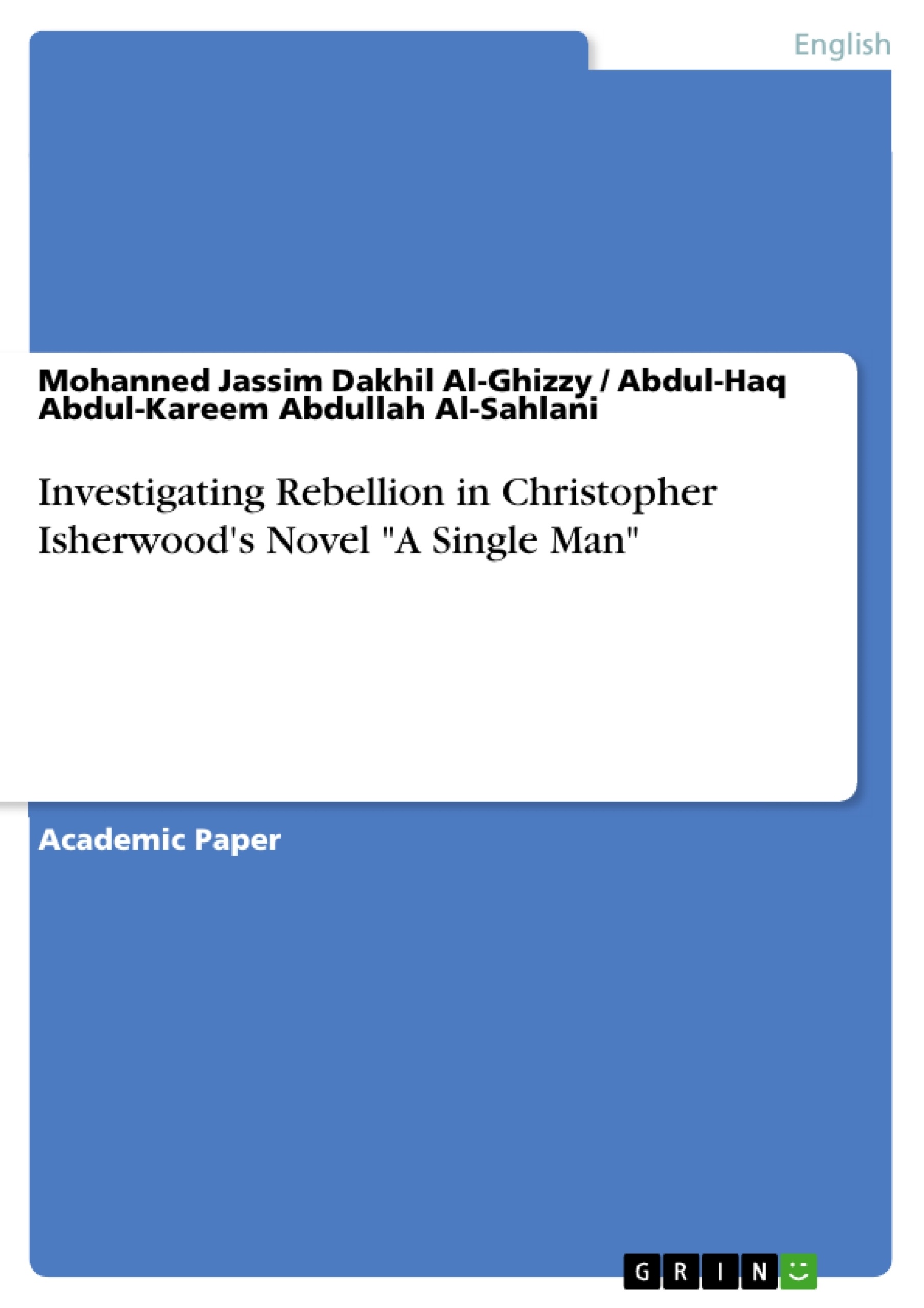The present study deals with Christopher Isherwood’s manipulation of the concept of rebellion in his most prominent novel "A Single Man" (1964). The significance of the current paper is to analyze the novel and explore the theme of rebellion. It may also be useful for those students who have a lack of understanding of this theme to find a simple summary that will benefit them in their studies similar to this topic.
The Isherwoodian novel depicts various stages of rebellion against the chaos of values, the middle-class conventions and against the authoritative moral standards that make certain forms of conduct appear right. There is a quest for spiritual growth and self-development in Isherwood’s novel; therefore, the spirit of rebellion becomes milder as the novelist becomes older and more mature.
The aim of this research is to trace Isherwood’s experimentation with the concept of rebellion. As the hypothesis of this research goes by, the forms he introduces into it change the conventional understanding of rebellion from a punishable law-breaking act into an instrument to deal with the difficult problems then to raise man to the occasion. Isherwood proves that rebellion is a constructive, not destructive, act whose role necessitates the improvement of the state and the individual.
A Single Man, presents a single day in the life of a lonely aged man who refuses life and locks himself in a small room thinking that the smallness of the room may protect him from the outside world. The conclusions end the study with Isherwood’s success in creating art works that suggest the possibility to change rebellion from a retributive act of disobedience into a positive act against tyranny, calling for the renovation of the modern society through a return to the way of God.
Inhaltsverzeichnis (Table of Contents)
- Section One
- 1.1 Introduction
- 1.2 The Definition of Rebellion
Zielsetzung und Themenschwerpunkte (Objectives and Key Themes)
This research aims to analyze Christopher Isherwood's novel "A Single Man" (1964) and trace his experimentation with the concept of rebellion. The study explores how Isherwood redefines rebellion, moving it away from its traditional understanding as a punishable act of law-breaking, and transforming it into a constructive force for personal and societal improvement.
- The concept of rebellion in "A Single Man"
- Isherwood's reinterpretation of rebellion
- Rebellion as a force for personal growth and societal change
- The role of rebellion in navigating social and moral norms
- The significance of rebellion in Isherwood's exploration of spiritual development
Zusammenfassung der Kapitel (Chapter Summaries)
- Section One: This section introduces the research by providing a general overview of the novel's exploration of rebellion. It further defines the concept of rebellion, differentiating it from related terms such as revolution and terrorism. The section also presents a historical perspective on rebellion, examining its manifestations in various contexts and discussing its potential for both constructive and destructive outcomes.
Schlüsselwörter (Keywords)
The key concepts and themes explored in this research include: rebellion, Isherwood, "A Single Man", spiritual growth, self-development, social norms, moral standards, societal change, personal transformation, constructive rebellion, and the redefinition of rebellion.
- Quote paper
- Ass. Lect. Mohanned Jassim Dakhil Al-Ghizzy (Author), Dr. Abdul-Haq Abdul-Kareem Abdullah Al-Sahlani (Author), 2022, Investigating Rebellion in Christopher Isherwood's Novel "A Single Man", Munich, GRIN Verlag, https://www.grin.com/document/1248760




